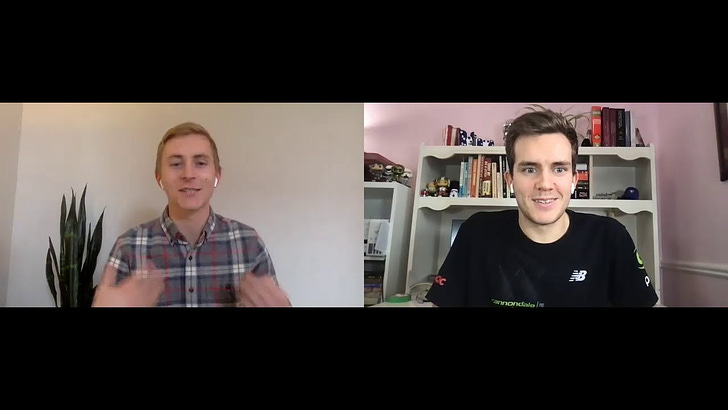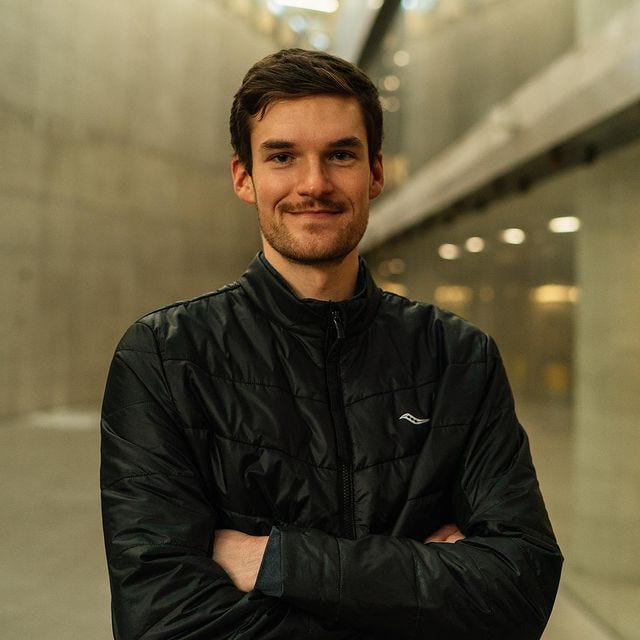When should Olympians get vaccinated? And would it be enough to save the Olympics?
IOC member Dick Pound said Olympians should get vaccinated before you get vaccinated. But not everyone agrees — including several Olympians
Hello!
Thank you to everyone who sent me kind words about the 100th issue of Run the North!
This issue, #101, is a return to regular programming: a mix of news, commentary and links for you from around the Canadian running world.
Let’s get to it!
Athletes speak out about not wanting to ‘jump the line’ in vaccine distribution
COVID vaccine distribution has started in most Western countries. In Canada, it is rolling out in three phases, starting with long-term care home residents and frontline workers. How well it’s going is up for debate. But Canadian International Olympic Committee member Dick Pound caused a stir when he suggested athletes should be vaccinated early, in order to save the Olympics.
The comments were first reported in Sky News:
"In Canada where we might have 300 or 400 hundred athletes — to take 300 or 400 vaccines out of several million in order to have Canada represented at an international event of this stature, character and level — I don't think there would be any kind of a public outcry about that.
"It's a decision for each country to make and there will be people saying they are jumping the queue but I think that is the most realistic way of it going ahead."
This indeed caused an outcry, with several Olympic athletes arguing they should absolutely not get the vaccine ahead of anyone, including gymnast Kyle Shewfelt, wrestler Erica Wiebe, middle-distance runner, Gabriela DeBues-Stafford and racewalker Evan Dunfee.
Gabriela gave an interview on CBC Sports to discuss the issue and Evan wrote an opinion piece about the issue for The XC.
Pound did backtrack a bit, saying that he meant athletes should not receive vaccines ahead of high risk populations and front-line workers, only before other Canadians in the final distribution phase.
This is from a follow-up interview with the Globe and Mail:
“Clearly health workers come first and the really vulnerable would be a close second,” Pound said. “Then you start triaging how you would use remaining dosages. And as I say, for the very, very small numbers involved and the very symbolic meaning of a successful Games in this context, my guess — and it’s only a guess – would be that most countries would be very much in favour of it.
“Both from a policy perspective and probably from the perspective of the public as well.”
As Gabriela pointed out in the interview above, the timeline in Canada might work. Phase 3 of the vaccination plan, which is when most non-vulnerable Canadian and non-frontline workers should get vaccinated, is July-September, with the expectation most Canadians who wish to vaccinated will be by the end of September. But not every country is in that situation. And we shouldn’t be expecting countries to have to decide between protecting their Olympic performance and protecting their vulnerable populations.
Laura Armstrong tackled the issue about athlete vaccinations more generally for the Toronto Star, looking at whether athletes are considered high-risk, whether athletes getting vaccinations early would help the campaign for vaccinations overall, who would even get to make this call, and the role sports plays in our lives and well-being generally — and if that’s enough to justify a ticket to an earlier vaccination.
All this is coming at the same time debates have been raised about whether the Games can happen at all and who should decide the Games’ fate, and public support in Japan for the Games is at an all-time low, in light of rising COVID cases around the world.
The Olympics are set to begin on July 23. That’s six months away.
Six months in COVID times is a lifetime: six months ago, Toronto was enjoying outdoor patio season and days on end with only a handful of cases. The Atlantic bubble was showing the world that COVID was beatable and life could be mostly normal, with the right measures in place. The second wave was a hypothetical future that felt unlikely to anyone who wasn’t an expert epidemiologist.
And here were are, in the toughest lockdown yet, with the highest case numbers yet.
I point this out because all it means it that it’s too soon to have any idea what the Olympics could be like, if we even need vaccines for them to be held safely or if they will even be held at all. Anyone who says otherwise is just speculating.
Uncertainty sucks, but that’s all have right now.
Trevor Hofbauer signs with Saucony Canada
Trevor Hofbauer has signed a sponsorship deal with Saucony Canada.
Trevor became the second fastest Canadian male marathon in 20219, when he ran 2:09:51 to win the Canadian Olympic trials, the national championship and to become the first person officially named to the Canadian Olympic team.
Trevor spoke to Canadian Running about why he was keen to sign with Saucony:
“Saucony stood out to me because they made me feel part of their family right off the bat,” Hofbauer says. “They made me feel valued, which was the biggest deal for me when finding a partnership.” Hofbauer says he was also drawn to the company because of its commitment to sustainability and its team of strong female leaders. He also notes that Saucony’s support for local running businesses impressed him long before this partnership was discussed.
Trevor is the second high profile Canadian marathoner to sign with Saucony in recent months: they also signed Canadian record holder Malindi Elmore in November.
Trevor and Malindi join “marathon mom” Krista DuChene on the Saucony marathon team.
Run Creature, a long-form site dedicated to running, ran a nice profile on Trevor recently. It covers his journey to becoming an elite runner, how the loss of his mother has shaped his running career, and how the 2019 Olympic trials felt like his last shot to make a mark, and how winning that has turned things around.
Strides: Other stuff to watch, listen to and know about
🏆 Since much competition was disrupted due to COVID, Athletics Canada has opted to not name any athletes of the year. Instead, they are celebrating all the excellence that did take place in 2020, which included 32 national records.
📚 Rosey Edeh, who held the Canadian 400m hurdles record for over 20 years, is a panellist on Canada Reads this year! She is defending the fantasy novel The Midnight Bargain by C.L. Polk. The debates will take place March 8-11 on CBC.
🌟 Canadian Running has put together a good roundup of upcoming virtual races.
👟 Doug Harrison at CBC Sports spoke to Gabriela DeBues-Stafford about her up-and-down 2020. She began the year training in Scotland, moved back to her childhood Toronto home where she and her husband quarantined with her siblings, father and stepmother, then ended the year training with Bowerman Track Club in Portland. She didn’t race, but thinks she did a good job building fitness — considering everything — and is looking forward to the Olympics, if they can happen safely.
🎽 The Marathon Project happened on Dec. 20, but since I took a week off, and then wrote a non-traditional issue last week, I have some stuff to share from that! Natasha Wodak, who ran 2:26:19 to become the second fastest Canadian marathoner ever, talked about her race with Women Run Canada, and had her training profiled by Women’s Running. The big lessons I took away from these pieces are: you need to be in a good place, mentally, physically, and emotionally, to do your best. You need to train for training’s sake. And you need to do your own thing: what works for others might not work for you.
👟 Natasha also spoke to her local newspaper, The Province, about how she is in the mix to run the marathon or the 10,000m at the Olympic Games now. She knows that as long as the qualifying window is open, nothing is certain, and is now going to focus on getting the 10,000m Olympic standard.
🎧 Women Run Canada also talked to steeplechaser Regan Yee. Regan’s been on the verge of a big breakout and could be in contention to make the 2021 Olympic team. It’s a good listen to learn more about Regan, how she approaches training and why attending Trinity Western University and sticking with her college coach as she’s moved into her pro career has worked for her.
👶🏼 Rory Linkletter and his wife Jill are having a baby, due in July.
💜 Women’s Running has an excellent piece by Erin Strout about giving yourself a break if running is only adding to your pandemic life stress. Some people are crushing running right now, and that’s great. But if that’s not you, that’s OK:
“If you can PR in a virtual race right now, good for you—I am impressed,” [therapist Rachel Gersten] says. “But I think a lot of people are not in that space. Don’t let running add to your stress. If you’re 30 seconds per mile slower than you were six months ago, it’s fine. It’s all fine.”
🗓 Ottawa resident Andy Wilson is planning to run every single day in 2021, to raise money for the Heart and Stroke Foundation. He’s doing this in memory of his father, who died of a heart attack in 2019. Andy’s plan is to run at least 5K a day every day, and he hopes to raise $25,000. You can follow his journey on Instagram and donate to his cause here.
🎧 Andrea Seccafien has been making the podcast rounds. The Canadian half-marathon record holder went on The Shakeout to discuss how the pandemic impacted her mental health and what it was like training through lockdown in Australia, which had some of the toughest rules in the world. She covers some of the same stuff, but also offers a more general overview of her life, career and running philosophies in a 90-minute conversation with Le Rundown.
📰 CBC Sports published a long profile about sprinter Aaron Brown. It covers his 2016 Olympic experience, how he’s dealt with anxiety and his tendency to put too much pressure on himself, how he’s dealing with the pandemic, how a fulfilling personal life (he recently got married to Preeya Brown, and they are expecting their first child in March) has helped him become a better runner and how his friendly rivalry with Andre De Grasse fuels him to be better. He also has a big goal in 2021: an individual Olympic medal.
👩🏾🍳 BlogTO profiled one of the more unique run groups in Canada: the Food Runners, which is a crew compiled completely of professional chefs and food industry workers.
📺 Stephen Anderson spoke to Ben Preisner on his Anderson Talks YouTube series. Preisner recently ran 2:10:17 at the Marathon Project, to become the fourth fastest Canadian marathoner of all time and qualify for the Olympics.
That’s it for this week!
If you’re reading online or it was forwarded to you by a friend, you can subscribe below:
Run the North comes out on Monday mornings.
I’ll see you next week!
— Erin @ Run the North



